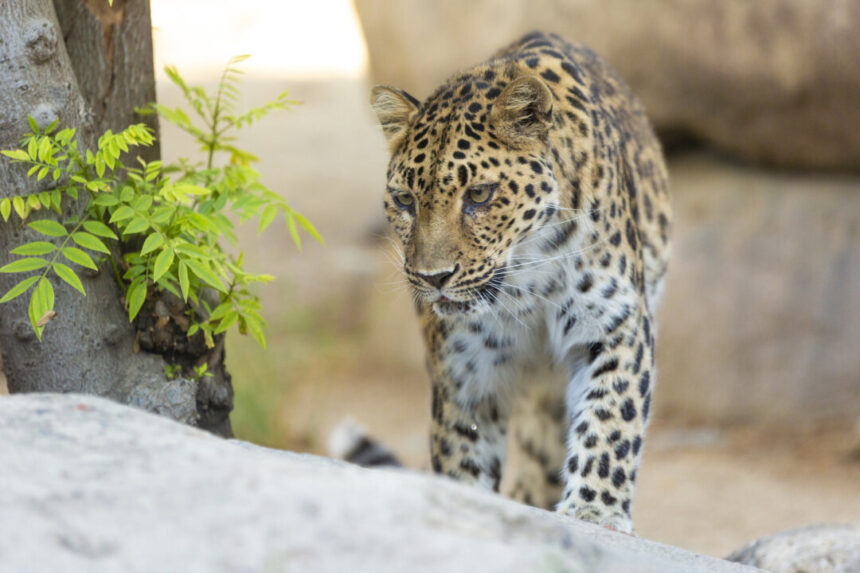LOS ANGELES—A critically endangered species of leopard has passed away at a Southern California zoo.
Zoya, a 21-year-old Amur leopard, died of old age at 21 at the Living Desert Zoo and Gardens in Palm Desert last Tuesday after over a decade there, zoo officials announced.
Zoya exceeded both the life expectancy of Amur leopards in the wild, 10 to 15 years, and in captivity, 15 to 20. She was one of the oldest leopards in human care in the country, according to the zoo.
Amur leopards were designated as critically endangered in 1996 by the International Union for Conservation of Nature. Native to the mountains of eastern Russia and northern China, they have adapted to the cold climate by having thick fur and paler coats than other leopard species to blend in with the snow.
In the 1970s, their population in the wild dropped to fewer than 30, making them one of the world’s most endangered big cats, as reported by the WildCats Conservation Alliance. However, there has been a slight recovery in recent years, with the current population estimated to be around 100.
Despite her old age and declining kidney function, Zoya remained “spry and athletic,” as per zoo officials. She enjoyed being up high where she could observe the warthogs and guests, as well as lounging on her rock overlooking the pond in the mornings.
“As we honor Zoya’s life, we urge you to appreciate the simple pleasures in life — just as she did,” the zoo stated. “Take time to observe the beauty of your natural surroundings. Embrace playfulness. Cherish those special, peaceful moments throughout the day.”
Various initiatives have been implemented to combat illegal poaching of Amur leopards, preserve their natural habitat, and boost the population of prey animals such as deer and wild boar, according to the World Wildlife Fund.
There are over 200 Amur leopards housed in 94 facilities worldwide, including the San Diego Zoo, the Santa Barbara Zoo, and the Minnesota Zoo. The San Diego Zoo welcomed two leopard cubs last year, marking its third litter.
By Jaimie Ding







